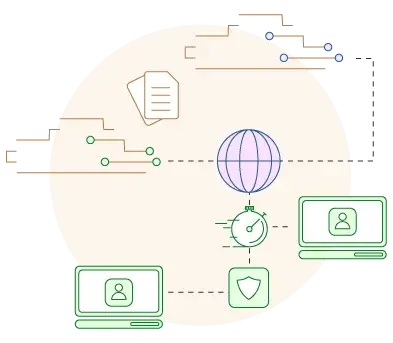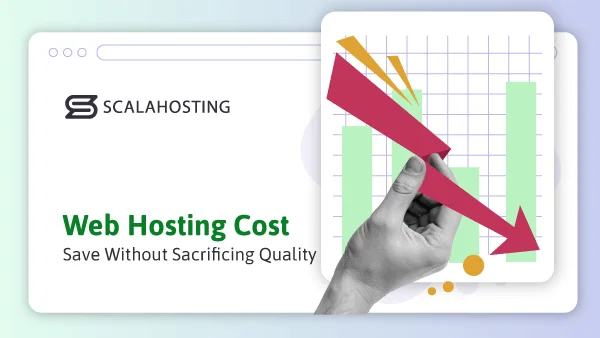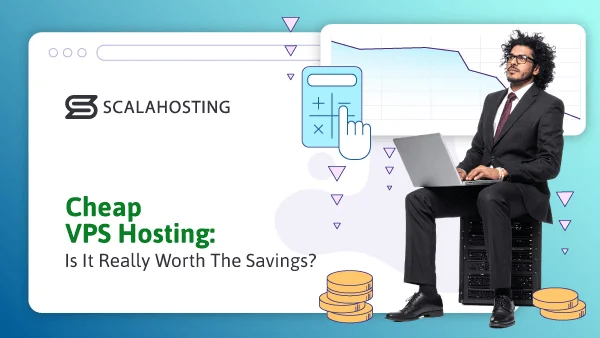For better or worse, video is the best medium for delivering content in this day and age. Cameras are everywhere, and there’s no shortage of people who want to be creative, shoot something interesting, and share it with the rest of the world. As a result, video websites are incredibly popular today.
Of course, we have all heard of YouTube, but the relatively recent appearance of platforms like TikTok shows that new, original ideas can grow into successful online ventures. If you are thinking of doing so as well, you’re probably wondering what sort of web hosting you’re going to need to get it off the ground, and today, we’ll try to help you get an answer.
What is a video website and What is a video social network?
Video websites come in all shapes and sizes but can all be separated into two easily-distinguishable types – the ones where the website owner creates the clips and the ones where the users are responsible for producing the content.
This should play an important role when you’re considering your different hosting options.
For example, even though security is always important, you must pay even more attention if you’re trying to create a social media platform. After all, apart from videos, people will be sharing personal details and delicate information you cannot afford to leak.
You must also consider how you’re going to deliver the videos to your users. In the past, the only way to do it was to upload a file to a server, give your friends a link, and let them download it on their own devices.
This is a dated approach nowadays, though.
Most people now enjoy directly streaming the videos without the hassle of downloading and playing them in another app. Even though this boosts your chances of success, it could also unveil some technical challenges.
Criteria to consider while choosing a hosting plan for your video website
If you’re a content creator, you’re probably tempted by the idea of getting a cheap hosting package, uploading your videos to YouTube, and embedding them on your website. This is indeed an option, and as you don’t need to pay for posting your videos on YouTube, it could definitely save you money in the short term.
There are a few drawbacks, though.
For example, the videos you upload must meet YouTube’s content requirements. If, for whatever reason, the YT algorithm and moderators decide some criteria aren’t met, they could take your video down with little to no warning.
What’s more, if users see they can watch the content on the video sharing platform, this could draw clicks toward your YouTube channel and away from your website. This is hardly ideal if you want to monetize your visual content.
This does mean, however, that your hosting package will have to handle and process large files. You need to make sure that you have enough storage space to host all of them. The amount of data your website will serve is probably going to be significant as well, so you’ll have to look for a solution with plenty of bandwidth.
This rules out shared hosting packages pretty much immediately. They may be the most affordable solutions but can never give you enough system resources to suit the requirements of a video website. The underlying infrastructure often limits the range of software applications you can install, plus sharing the same server with dozens of other users will never give you the stable performance you need.
Time to consider either a VPS or a dedicated server.
Virtual Private Servers vs Dedicated Servers
The price difference between a Virtual Private Server (VPS) and a dedicated server is significant, so you should obviously consider the budget limitations when you’re choosing the hosting plan for your project. More importantly, however, you need to think about what sort of ideas you have for your new video website and how you plan to materialize them.
If you’ve prepared a major marketing campaign and expect the project to be a great success, you may even want to consider hiring a dedicated server from the very start. On the other hand, if you’re not quite sure how things will unfold, you’re probably better off starting with a VPS.
A VPS offers many of the advantages of a dedicated server, but at a much lower price. A VPS is relatively affordable because, just like shared hosting accounts, the same physical server can host multiple VPS clients. However, this time, the number of users sharing the same server is much lower, and every account is isolated in its own virtual machine.
As a result, other accounts can’t interfere with your website’s performance. Every single VPS comes with a dedicated IP address and guaranteed resources, available at all times. The performance is reliable enough, and you can easily predict how your website will behave in the event of a traffic spike.
If you think that it won’t hold up too well, you can take the appropriate measures. One of the best features of a VPS is its effortless scalability. Whenever you see the CPU, RAM, or storage space are creating a performance bottleneck, you can add more resources on-the-go to maintain optimal speeds.


The upgrade is pretty much instantaneous and causes no service downtimes. You can improve your website loading speeds or prepare it for a traffic surge with no more than a couple of clicks. Still, if your project’s popularity continues to grow, you will eventually reach the point when a VPS is no longer a sustainable solution.
A dedicated server hosting plan reserves an entire physical server just for you. Dedicated servers tend to be extremely powerful, and the hardware resource abundance gives you an immense boost for your website performance.
Another advantage of the dedicated server is the ability to customize it to perfection. You often receive root access and are free to do pretty much anything you want with your hosting environment. You can then install the software of your choice and configure it just the way you want it.
Perhaps the biggest difference, however, is in the allocated bandwidth.
The dedicated server is the most powerful type of hosting and is well-suited for video websites with a lot of traffic. It comes with high bandwidth limits, which is exactly what you need as you get a more loyal following.
When do you need to switch to a dedicated server?
The performance of a video website depends on a wide variety of factors, and it’s difficult to pinpoint exactly how many visitors it would take before you have to upgrade to a dedicated server.
For example, your video website might be optimized to handle a large number of visitors without putting too much pressure on the hardware. If you reach the plan’s bandwidth limit, however, you will have to check if your host can scale it, or you would have to upgrade.
In a different scenario, you might be running your website through a Content Delivery Network (CDN), which would mean the bandwidth consumption is less of a problem.
Most VPS packages, especially the managed ones, give you the tools that help you easily monitor your bandwidth and resource usage. If you can’t find them yourself, you can always contact your hosting provider’s support team, who will gladly assist with the information.
Reaching any of the resource limits can be solved by either adding more or upgrading to a dedicated server.
Possible issues when upgrading to a dedicated server
The upgrade timing is rather important because the process of switching to a dedicated server is a bit time-consuming.
After you complete the order, the hosting provider must order the server from the data center and install the operating system. You (or your host’s support team) then need to migrate your data and ensure that everything works.
Finally, the domain nameservers must be changed, so they resolve to the new dedicated server instead of the old VPS. The entire process takes time, and if your website reaches the limits of the VPS during the upgrade, it could experience costly downtimes.
It’s a complex process that needs to be carefully planned and well-organized. If your VPS-hosted video website is getting an increasing number of visits, make sure you don’t underestimate the consequences of a delayed upgrade.
Conclusion
Video websites tend to be quite complex, and choosing the correct hosting plan for them is even more important than usual. Unfortunately, this often turns out to be easier said than done.
VPSs and dedicated servers are both powerful hosting solutions, but which one is more suitable depends on a number of different factors, including how your website was built, how many people visit it, how they interact with it, etc.
All these must be taken into consideration when you’re deciding which hosting plan you’ll take.
FAQ
Q: What is a video website?
A: There are so many different kinds of video websites that it’s not really easy to put them under a single definition. Broadly speaking, any website that conveys most of the content through the medium of video clips can be considered a video website.
Q: Are video websites more resource-hungry than other websites?
A: Video files tend to take up a lot of space, and if many people want to watch them, this will inevitably consume a lot of bandwidth. You should keep this in mind when you’re choosing your hosting plan and ensure enough system resources for media streaming and downloads.
Alternatively, you can always watch your favorite movies, TV shows, videos using OTT and online services like Cordcuttinglab.
Q: Why isn’t shared hosting suitable for video websites?
A: Shared hosting is the most affordable type of hosting, but it’s nowhere near powerful enough to work for growing video websites. Because dozens of different websites share the same resources, the performance is far too unpredictable and could cause problems down the way.
In addition, the high demand for storage space and bandwidth means even less powerful video websites could easily reach the limits of a shared hosting account.
Q: Why are dedicated server hosting plans so expensive?
A: With a dedicated hosting plan, you get full control over an entire server. It’s an enterprise-grade machine that is quite expensive to buy and maintain alone. The server is stored in a data center – a facility dedicated to keeping the equipment connected to the internet and in perfect working order.
An incredibly complex infrastructure is there to ensure that things rarely go wrong, and when they do – a team of experts is on hand to take the appropriate actions. All that adds to the final price and make dedicated servers well-suited only for enterprises that can afford to spend hundreds of dollars on web hosting each month.
What is a VPS – Everything you need to know!


